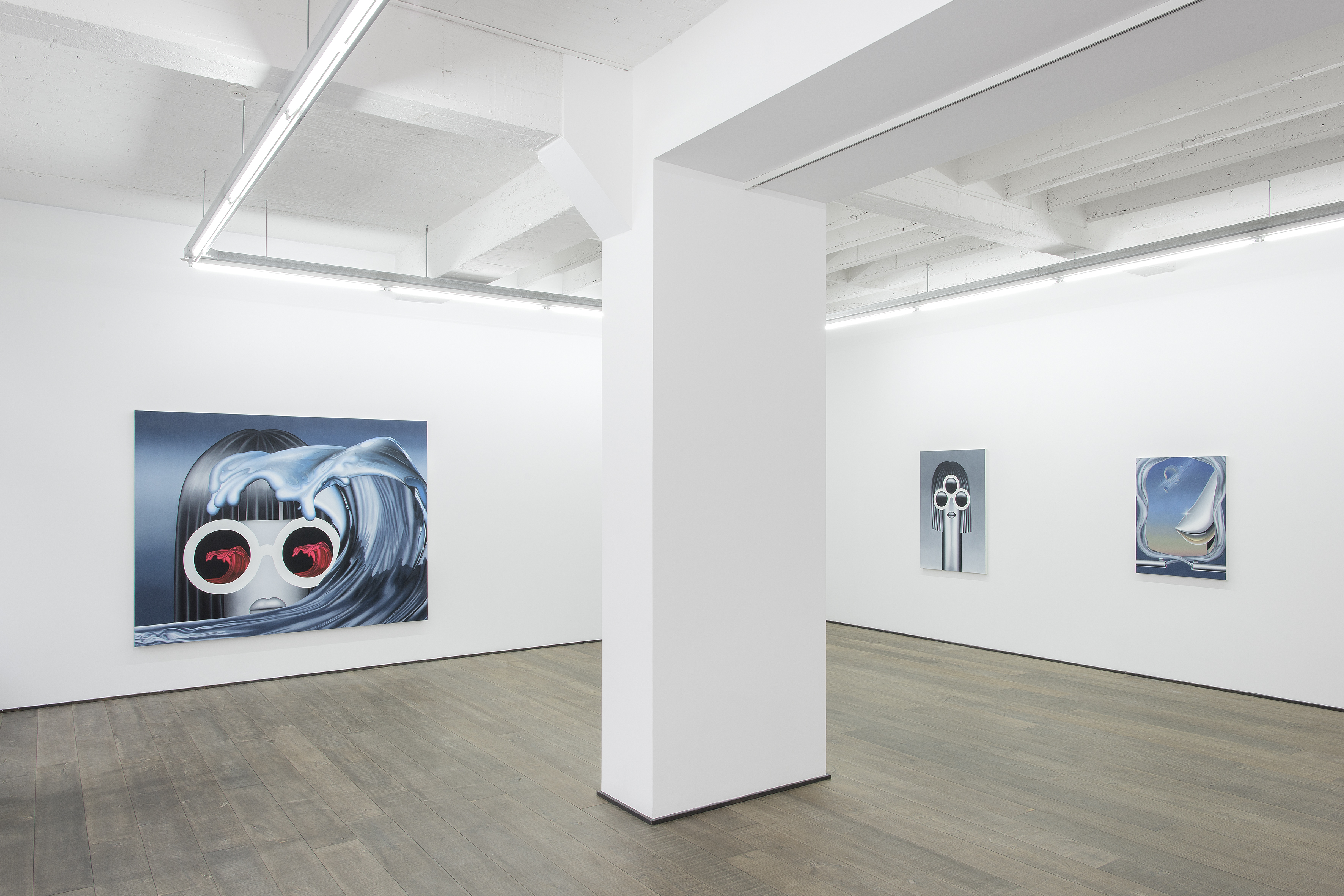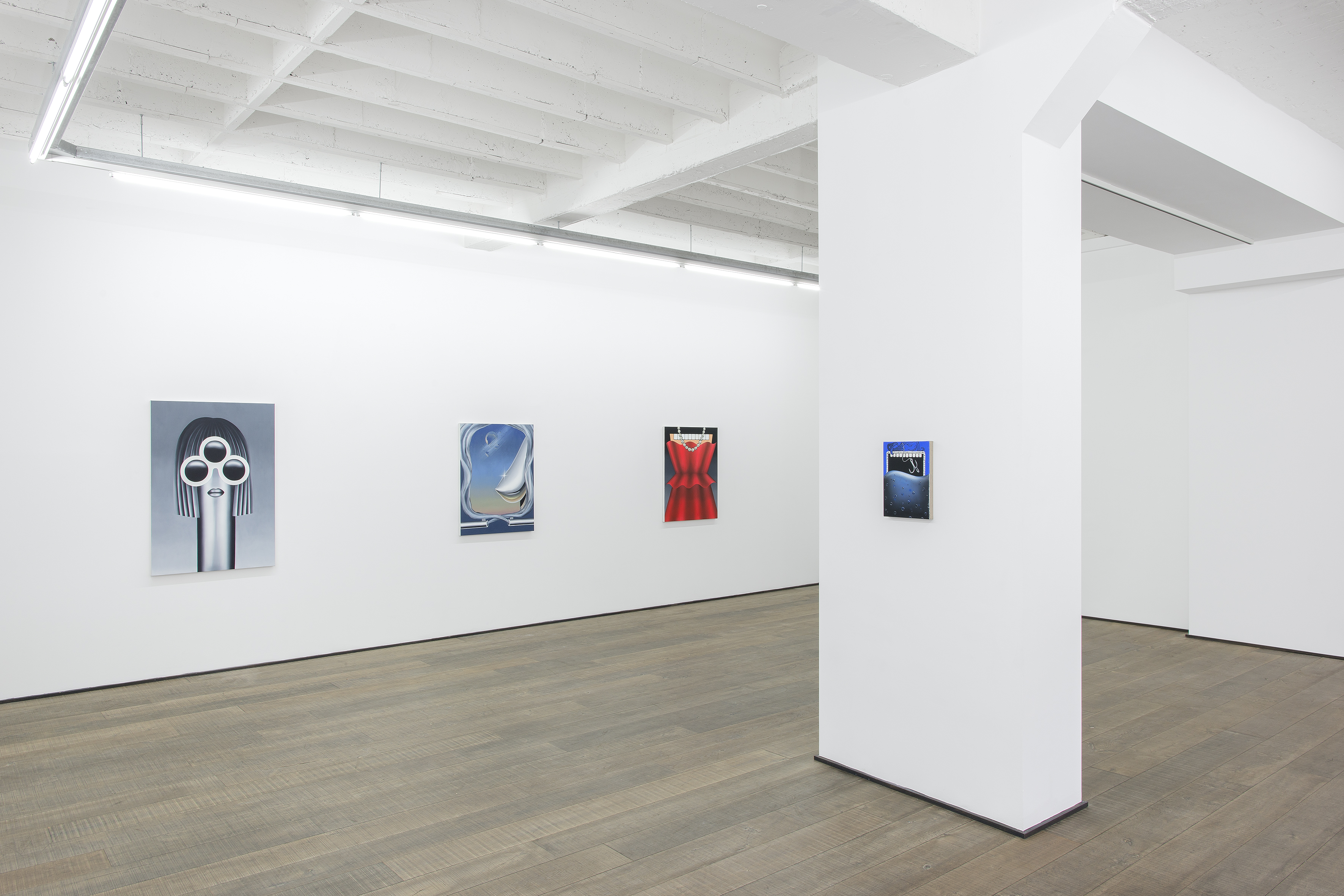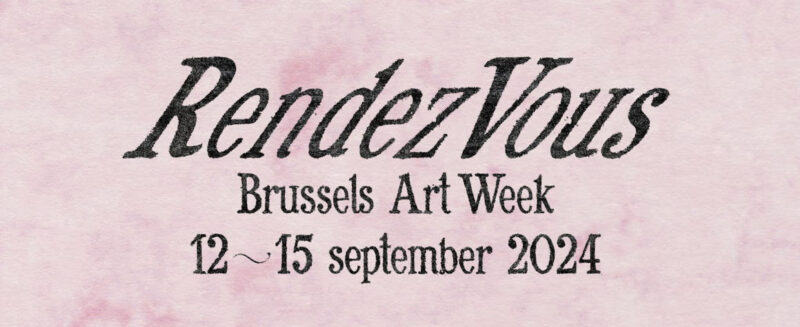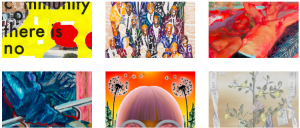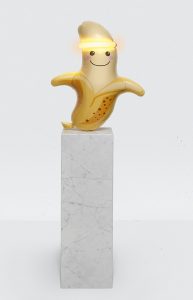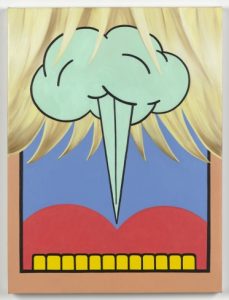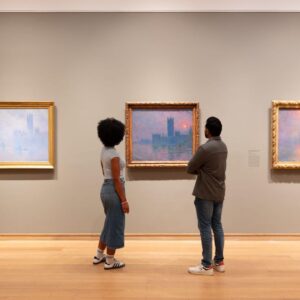In Christopher Priest’s 1995 novel The Prestige, scientist Nikola Tesla enters the plot and builds a machine that is intended to enable physical teleportation for use in the stage act of a magician. The machine is flawed, and merely creates a duplicate of the original item or person. Emily Mae Smith’s Tesla Girls could have been these creatures, these inventions that duplicate an actual state of being within a parallel universe. All visual wit and dark humor, the artist expands her practice of dystopian portraits by integrating feminist theories about corporeality, on a futuristic and nearly sci-fi background. The same way Tesla would create a new person with familiar attributes but a blank history; Smith renders the female body as a blank surface for new inscriptions to be written. She envisions the woman’s body in general as a site of cultural and pictorial projection: from visual culture to art history or advertising, discourses are legion and erasing them is a tricky enterprise.
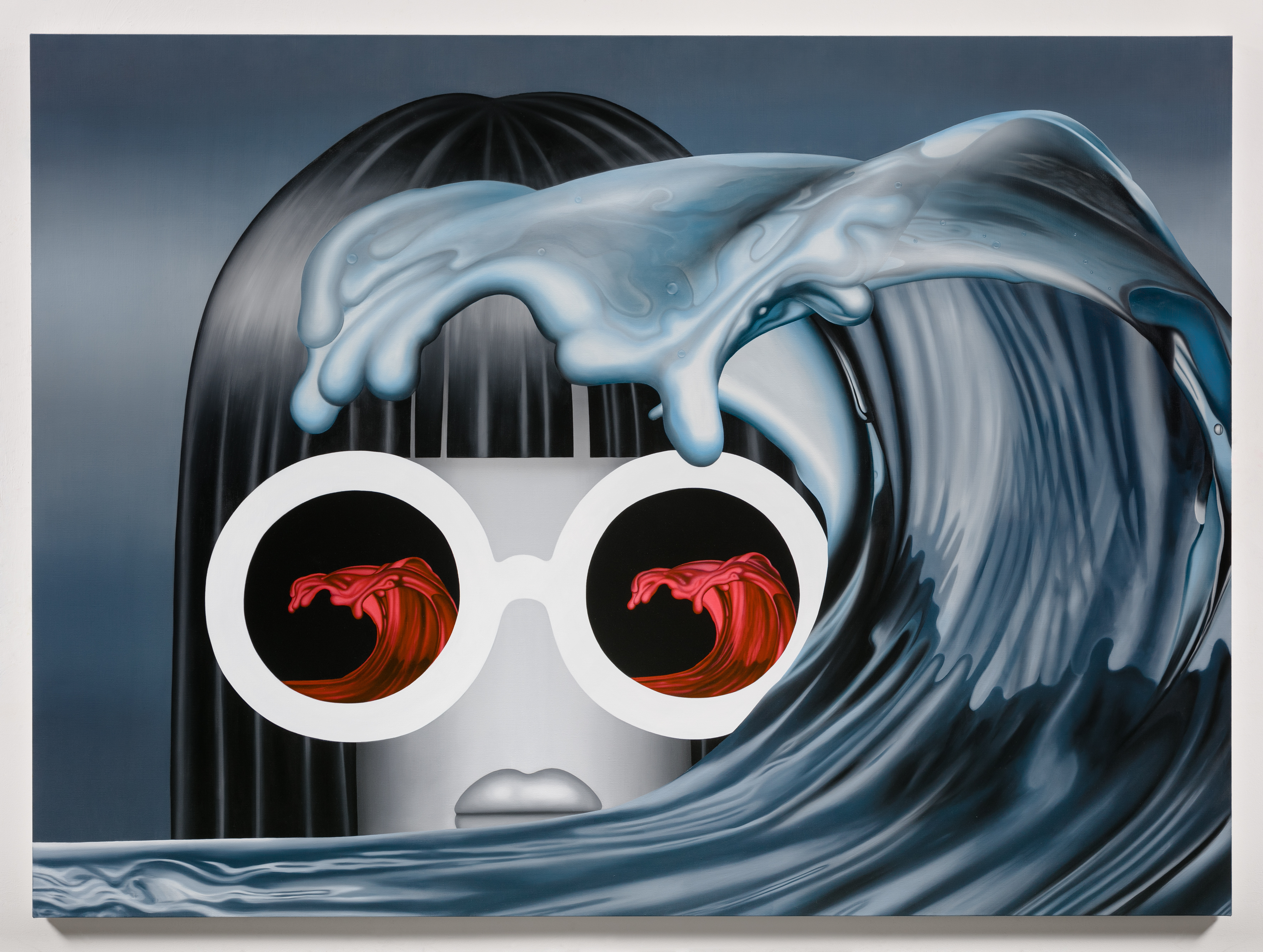
Courtesy Emily Mae Smith & rodolphe janssen, Brussels.
Yet, the paintings of Emily Mae Smith engage with gendered framing and the male gaze, making both obsolete. Among the paintings in this exhibition, some are titled “Madame X” or “Volatile Bodies”, and link back to a larger body of work questioning the woman’s corporeality and actual visible presence. With her new series of portraits, Smith manages to twist these sign systems, and to soak them in something new. Her characters are placed within deceptively beautiful places, soft environments that actually suggest a sense of no space. In our post digital era where images flatten their subjects, Smith embraces the movement and takes it to its very end; smooth bodies on flat surfaces create a brilliant disconnect and reveal the construction – physical and social – of the featured subject: here, hyper sexual feminine figures. Take the recurring broom brush lady for instance, on top of being an implement with all the duties that such a position implies, it is also, if analyzed formally, a dressed up phallus. In conversation about her work, Smith goes deeper: “I’m trying to inscribe something new on these sign systems- like how the close up of a pretty face is a familiar sign system to sell makeup, beer, insurance, or any product you can think of.
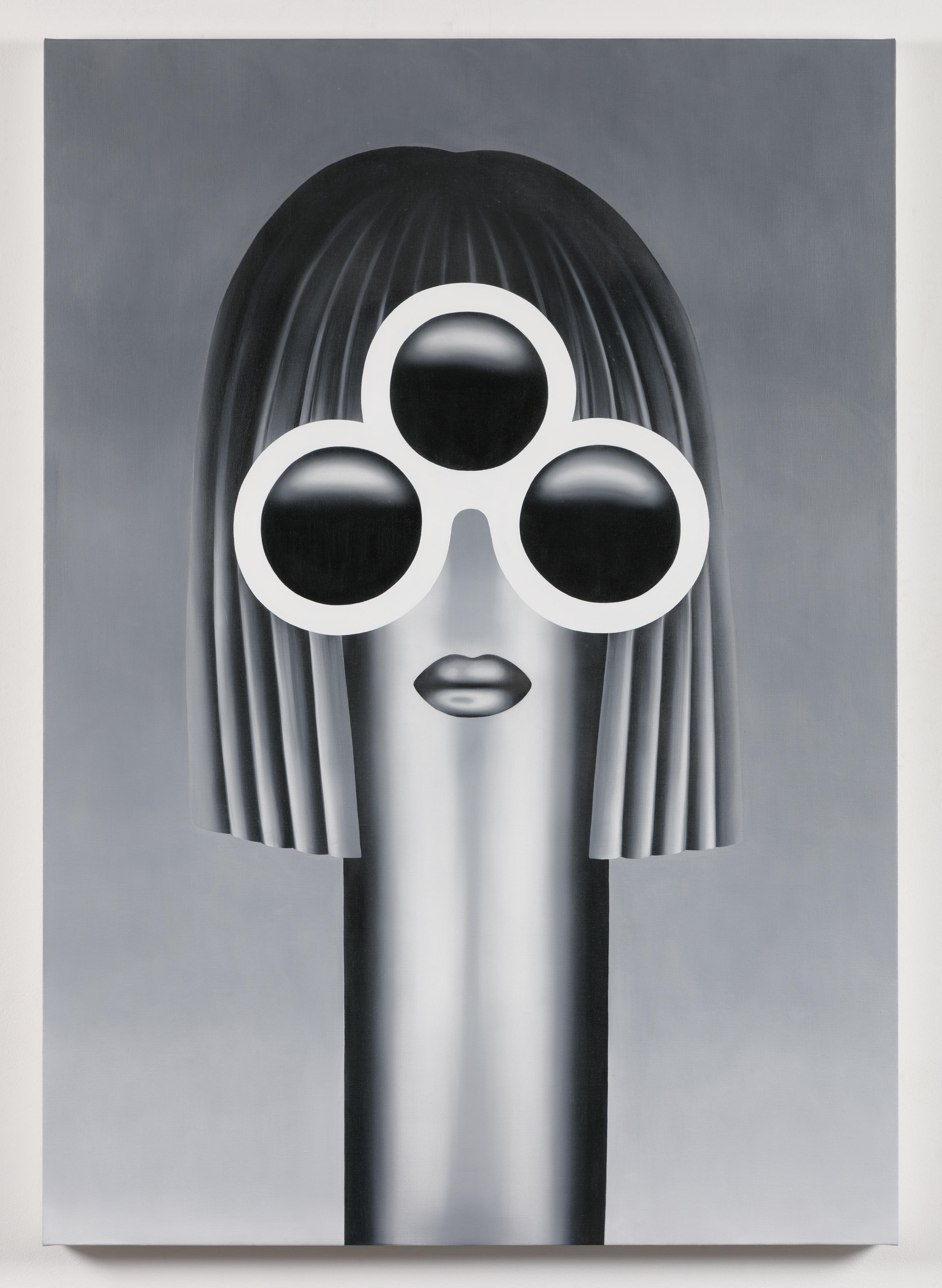
But in my world I’d like to use that sign to construct space for interiority, psychology, subjectivity. And to be honest as I see it, the interiority, subjectivity, and psychology of women is completely absent as a visual language in western culture.”Despite the glamour finish that echoes Pop Art, the exhibition has a dark and slightly ominous feel. Smith replays the romanticized forms of the female body from pre modern visual styles like Surrealism or Art Nouveau and reinterprets the idea of the icon that becomes an avatar or self-portrait with the innocently sexual charge of a fairytale character. The many layers of her meticulous oil paintings reveal several layers of meanings as well. When Smith paints water, it is water indeed but it is also a metaphor for paint itself – as her main avatar character is a broom/brush – but it can also be a metaphor for any sort of bodily emanation. Therefore a work like Rogue Wave is not only a play on Hokusai’s 1830 The Great Wave off Kanagawa, but also a very raw and screwball comment on gender relations.
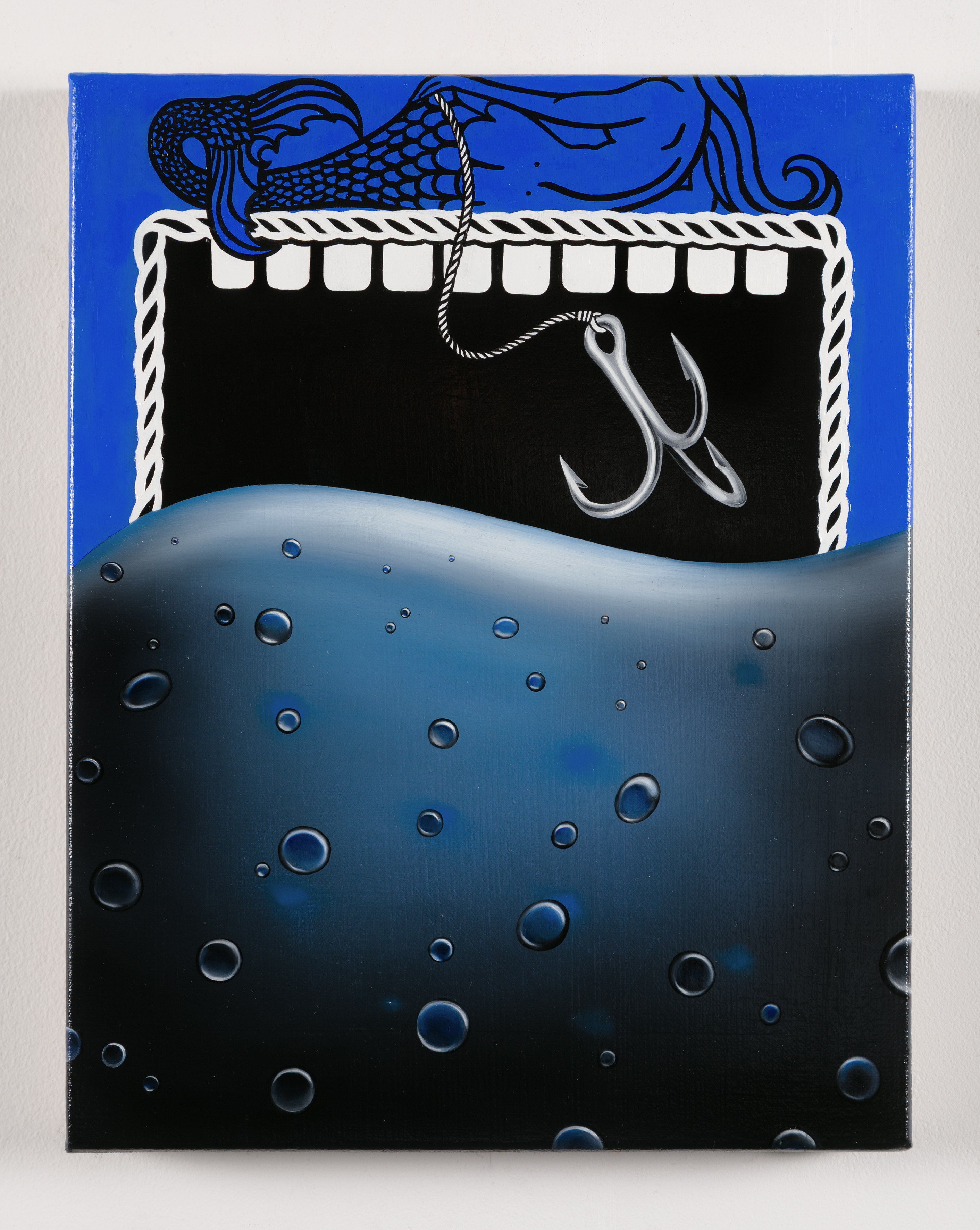
Courtesy Emily Mae Smith & rodolphe janssen, Brussels.
In her flattening of hierarchies between high and low, Smith realizes a coup de maître as she opens up new dimensions of cognitive possibilities. The frontal position of her subjects blends painting with the visual vocabulary of new technologies, creating a clear and lucid take on a period “that’s ripe with debate over what it means to be a human in one kind of body or another” as the artist herself puts it. Text by Myriam Ben Salah
Now till 12th November at rodolphe janssen Brussels www.rodolphejanssen.com
